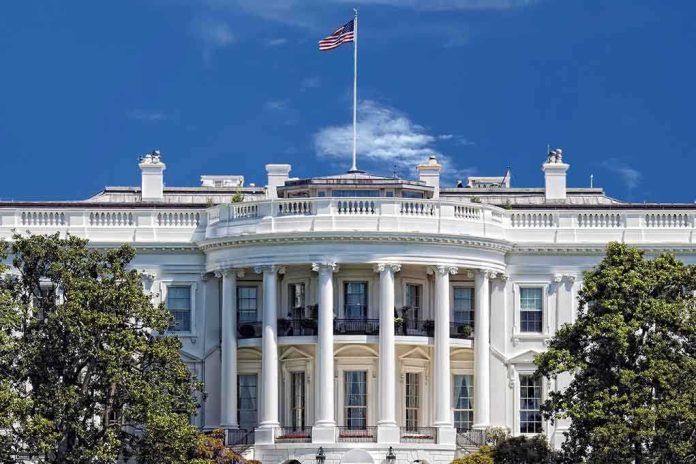
When a sitting US president openly declares that billions in aid depend on whether a foreign leader wins reelection, we’ve crossed from diplomatic pressure into something far more brazen.
Story Snapshot
- Trump pledged $20 billion to Argentina during Milei’s October 15 White House visit, then warned aid hinges on upcoming election results
- The conditional aid package represents unprecedented explicit interference in a partner nation’s democratic process
- Argentine voters now face a choice between their preferred candidate and economic survival
- This sets a dangerous precedent where US financial leverage becomes a tool for handpicking foreign leaders
The White House Meeting That Changed Everything
President Trump welcomed Argentine President Javier Milei to the White House on October 15, 2025, announcing a massive $20 billion economic lifeline for the struggling South American nation. What should have been a straightforward display of bilateral cooperation quickly morphed into something unprecedented. Trump made clear that Argentina’s continued access to American generosity depends entirely on one factor: Milei winning his next election. The message couldn’t be clearer. Vote correctly, or watch the money disappear.
President Donald J. Trump and President of Argentina Javier Milei @JMilei. 🇺🇸🤝🇦🇷 pic.twitter.com/YAz1d57jkC
— The White House (@WhiteHouse) October 14, 2025
This wasn’t diplomatic nuance or carefully worded encouragement. Trump essentially told Argentine voters their economic future hangs in the balance of their ballot choices. The $20 billion package addresses real economic distress in Argentina, making the threat particularly potent. When your country needs that kind of financial intervention, the leverage becomes almost irresistible.
When Aid Becomes Electoral Ammunition
The United States has a long history of influencing foreign elections through various means, some more subtle than others. What distinguishes this situation is the complete absence of pretense. Trump didn’t couch his position in diplomatic language about shared values or strategic partnerships. He simply declared that American taxpayer money flows only if Argentine voters make the “right” choice. This transactional approach transforms foreign aid from a tool of diplomacy into outright electoral coercion.
The conservative principle of America First means using our resources strategically and ensuring our allies share our values. It doesn’t mean holding sovereign nations hostage to our preferred electoral outcomes. When we condition aid on specific political results rather than policy alignment, we undermine the very democratic processes we claim to champion. Milei may indeed be the better choice for Argentina and for US interests, but that decision belongs to Argentine citizens, not Washington bureaucrats wielding checkbooks.
The Sovereignty Question Nobody Wants to Answer
Argentine voters now face an impossible calculus. They must weigh their genuine political preferences against the economic catastrophe that might follow if they choose incorrectly. This isn’t persuasion or even pressure. It’s economic blackmail dressed up as foreign policy. The $20 billion represents genuine relief for a country in financial distress, which makes the conditional nature of the offer particularly coercive. Voters aren’t simply choosing between candidates; they’re choosing between political autonomy and economic survival.
The broader implications extend far beyond Argentina. If this approach becomes standard American practice, every country receiving US aid will understand that continued support requires maintaining leaders Washington approves. This fundamentally alters the nature of international relationships, converting partnerships into dependencies and allies into vassals. The question isn’t whether Milei deserves support. The question is whether American aid should ever explicitly depend on foreign electoral outcomes.
The Precedent That Should Worry Everyone
Future administrations will look at this moment as either an aberration or a template. If conditioning aid on specific election results becomes normalized, we’ve fundamentally changed how American power operates in the world. Countries will increasingly view elections not as expressions of popular will but as auditions for American approval. The long-term damage to democratic norms and international relations could far exceed any short-term strategic gains from keeping preferred leaders in power.
Trump’s supporters will argue this represents hardheaded realism about protecting American interests and ensuring our money supports genuine allies. Critics will call it imperialism with a price tag. Both perspectives miss the deeper problem. When we make aid contingent on electoral outcomes rather than policy commitments, we corrupt both the aid and the elections. Argentina deserves better. American taxpayers deserve better. And the principle of national sovereignty, however imperfect in practice, deserves better than being auctioned off to the highest bidder or the most compliant leader.
Sources:
What to know about the Trump administration’s $20B bailout for Argentina



